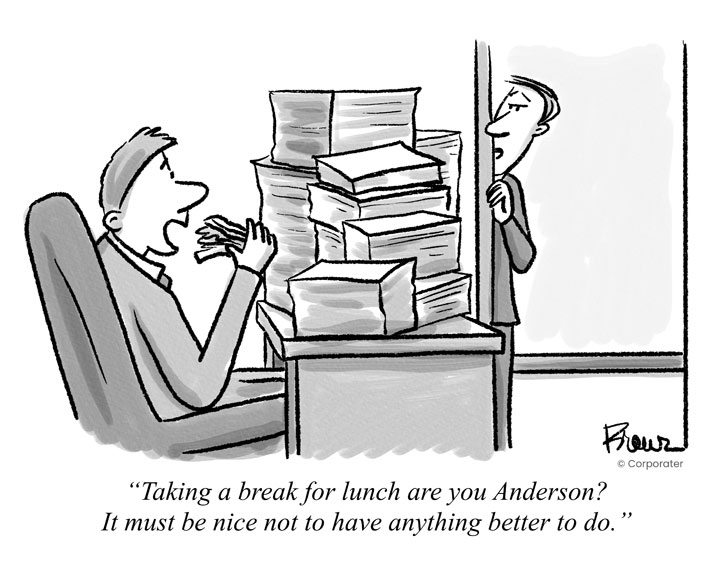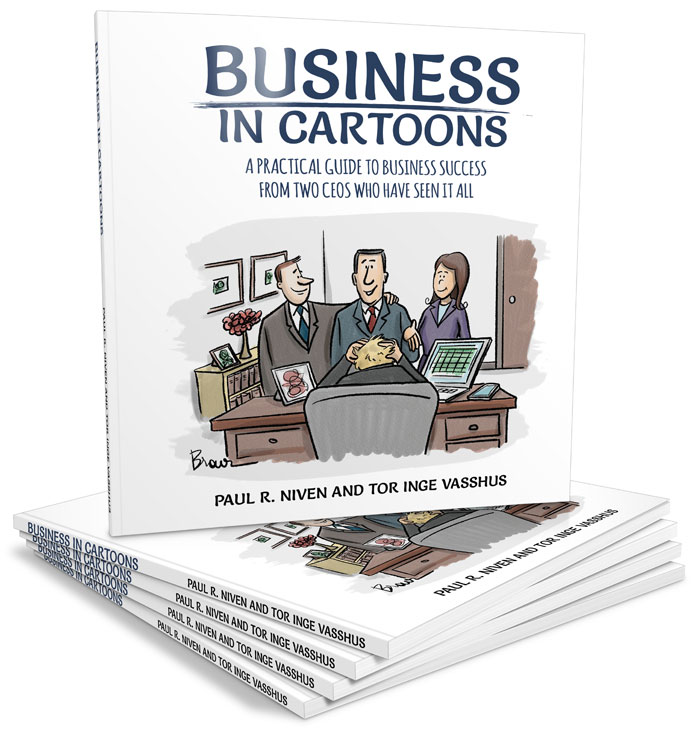
Over the past two decades, we’ve facilitated thousands of workshops with organizations around the world. During these sessions clients engage in the significant mental effort required to build systems that will lead to the execution of their strategies. It’s hard work, intellectually demanding and often tiring, but ultimately rewarding when the entire team lands on the same strategic page, understanding exactly what success looks like and how they’ll achieve it.
When the clock ticks close to noon during these events, it’s very common for participants to meet calls for a lunch break with a few sneers and remarks that suggest the not so subtle subtext of “We’re professionals, we don’t need a lunch break … let’s power through this!” The desire to capitalize on the momentum accumulated during the morning session is understandable, and we applaud the work ethic of those wanting to carry on without a break. However, as a mounting body of research indicates, working through lunch is simply not a good idea for you, or your organization.
That is, if you’re even lucky enough to have a lunch break. Some recent estimates suggest that just one in five office workers is taking a break away from their desk. Again, that’s a mistake. Chris Cunningham, a professor at the University of Tennessee, is one of many researchers who believe a midday break is essential in restoring the energy and focus necessary to tackle the pressing problems most of us encounter in our day-to-day work lives. “The attention it takes to focus at work drains (people) of psychological, social, and material reserves, leading to stress and lower productivity. Taking a lunch break away from the desk lets people separate themselves from the source of that drain.” i
Concentration, cognitive capacity, and the willpower necessary to forge ahead on tasks are all limited resources that we deplete during the day. Without a break (or breaks) we exhaust those reserves, diminishing our ability to be creative and problem-solve effectively — the very currency of modern productivity and effectiveness. Do yourself a favor, when noon rolls around, instead of plowing ahead, try these ideas instead.
- Take a walk
The evidence on movement is clear and compelling. Getting out and simply walking for a short period of time can improve brain function, lower anxiety, and recharge your cognitive battery for the rest of the day. The benefits are even greater if you have access to nature. Compare that with the alternative of sitting at your desk. Research from the Mayo Clinic has linked sitting for extended periods of time with a number of significant health concerns including obesity and metabolic syndrome, a deleterious band of conditions including high blood pressure, high blood sugar, excess body fat around the waist, and abnormal cholesterol levels. As if that weren’t bad enough, the research also suggests that sitting too much can increase the risk of death from cardiovascular disease and cancer. - Eat!
Given our hyper-busy lives, many of us have neglected the “lunch” in lunch break. Rather than enjoy some nourishing food, we take the opportunity to run errands, squeeze in a workout, or of course continue working. However, to function effectively our bodies require fuel. But hold on, that doughnut or candy bar from the office vending machine, the one that spikes your glucose levels for thirty minutes before leading to an inevitable crash, it doesn’t count. Try whole foods, mostly plant-based, instead. - Socialize
Our first piece of advice was to get outside and walk, so why not magnify its positive effects by combining it with a little quality time shared with coworkers or friends whose company you enjoy.
If there is one thing pretty much everyone can agree on these days, it’s the fact that — despite the many labor-saving devices omnipresent in our lives — we’re all busier than ever. Powering through your day without stopping may be efficient in the short term, but for the sake of your long-term health and productivity, do yourself a favor and take a little break from time to time.

